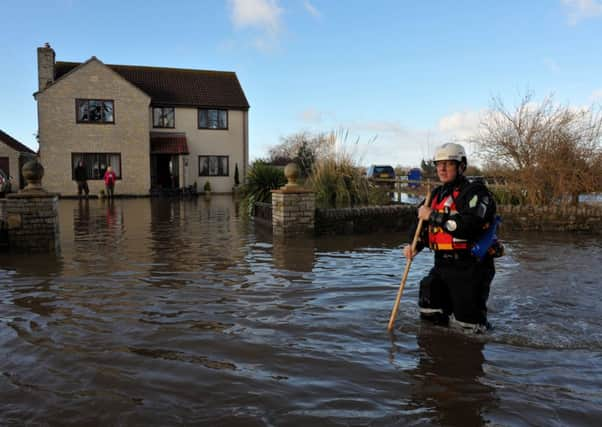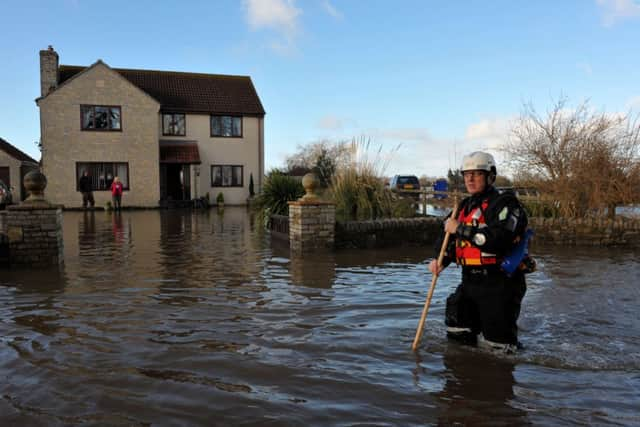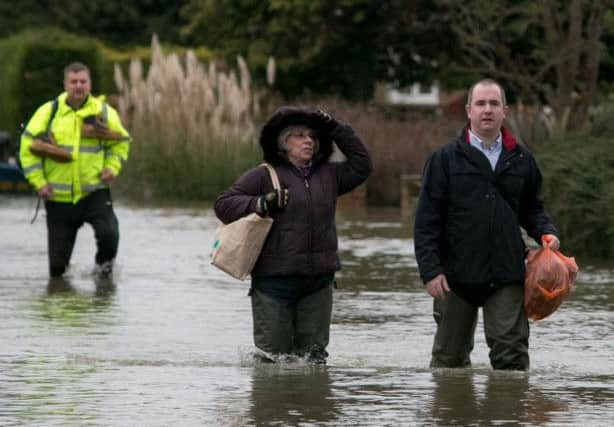Fears floods could devastate region just like the South


High winds gusting in excess of 70mph are set to batter the region later today as the latest in a series of storms hits the country.
Southern Britain is braced for a “Wild Wednesday” of severe storms and rising water levels, with no prospect of an end to the misery in sight.
Advertisement
Hide AdAdvertisement
Hide AdForecasters are predicting no imminent end to the bad weather as Prime Minister David Cameron last night warned that the country faces “a long haul” to recover from the devastation of recent weeks.


A total of 1,600 military personnel have been deployed to assist in flooded areas as waters in the Thames continued to rise yesterday.
Mr Cameron said he feared the situation could deteriorate further as he announced new measures to help affected businesses, a £10m fund to support farmers and to look again at flood insurance cover for small businesses and farmers.
But at a meeting in Yorkshire yesterday concerns were raised that river management is failing because policies have not been adapted to changing weather patterns.
Advertisement
Hide AdAdvertisement
Hide AdArable farmer Richard Bramley, of Kelfield, near Selby, said his land was flooded five times during the 20th century, yet it had been flooded six times since 2000.


“Our river systems are managed systems from river to sea and have been for centuries, and the management of them has not altered to take into account the change in the weather and the topography of the area,” he said.
“There’s got to be joined up thinking, not just about building defences but better water management. We are in a situation where there’s an urgency to act - it’s almost panic stations because of what we have seen down in the south. We have been very lucky, that’s all it is.
“These strategies are something we have been making for decades and no-one has been responding to. It’s a combination of a multitude of different things on a small level – slowing water flow down from the hills and dredging in some places.
Advertisement
Hide AdAdvertisement
Hide Ad“We used to have barges that would be used to rake up sediment and keep the channels clear in our rivers but there is no river traffic, for example, on the middle reaches of the Ouse anymore.
“Yorkshire is the second most flooded part of the UK. We have just been lucky this time that the rain has dropped in the south and the south west rather than in our neck of the woods.
“That doesn’t mean to say it won’t happen here next week. The land is saturated as it is and we feel vulnerable.”
Environment Agency officials gave an outline of its work in the region to members of the farming community at the event at the Food and Environment Research Agency in Sand Hutton, near York, which was organised to contribute towards a region-wide strategy for water management to influence government policy.
Advertisement
Hide AdAdvertisement
Hide AdThe agency has been heavily criticised for its performance, but Charles Mills, chairman of the Yorkshire Food, Farming and Rural Network, the organisation that hosted the summit, said he did not want there to be “a blame game situation” over Yorkshire’s susceptibility to flooding.
Mr Mills, who farms at Appleton Roebuck, near York, said: “We have a problem and have to rise to the challenge. Hopefully funding will be available so some of these water courses can be put into the hands of Internal Drainage Boards. But today wasn’t just about too much water, it was about water storage as well. At certain times of the year, we don’t have enough water to farm the land effectively.
“There’s a case for some of the less productive farmland to be used for water storage for when water is in short supply but there needs to be joined up thinking between farms and all the necessary bodies.”
James Copeland, regional environment adviser for the National Farmers’ Union, said recent flooding and discussions at the summit must be acted upon as agriculture benefits the economy not just through food production but also via leisure and tourism.
Advertisement
Hide AdAdvertisement
Hide AdHeavy rain today will be followed by high winds which will batter western coasts before driving across Yorkshire. Another weather system is expected to hit the UK on Friday amid warnings of further significant flooding.